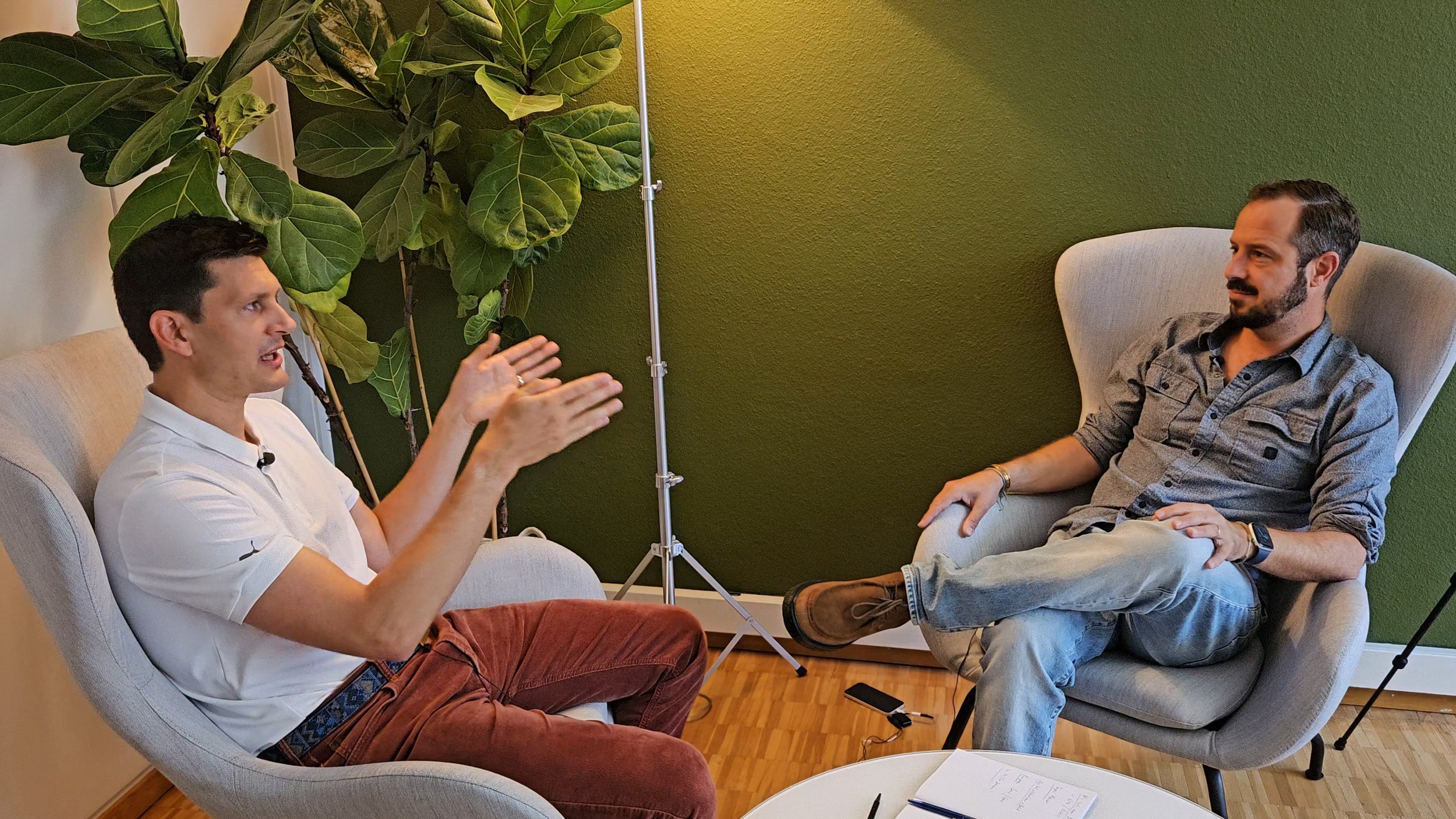Rethinking Capital for Impact: Falko Paetzold Joins Übermorgen Ventures
Highlights
Systemic innovation in impact investing cannot wait—evergreen structures point the way forward.
Real impact is achieved by allocating different forms of capital beyond just money: knowledge, reputation, and network matter.
True change comes from equity deployed in private markets and impactful startups, not passive public investments.
Solving climate change is both a moral obligation and a generational business opportunity—the imperative is urgent, and the rewards are clear.
The future narrative of impact investing will unite financial and social returns, driven by today’s innovators and bold fund structures.
In today’s climate venture landscape, impact investing is more than a financial strategy—it’s an imperative. Recently, Übermorgen founder Adrian sat down with Dr. Falko Paetzold, academic leader and founder of the Center for Sustainable Finance and Private Wealth, to reflect on why he joined the advisory board at Übermorgen Ventures. Their conversation covered the evolution of venture investing, the limitations of traditional models, and the broader responsibility investors face in the age of climate crisis.
Here are some of the main topics and quotes of the interview. You can listen to the whole conversation on Spotify.
The Case for Evergreen Venture Models
Traditional venture capital forces portfolio companies into fixed exit timelines—10 or 12 years—potentially undermining the very impact investors seek. Übermorgen Ventures’ evergreen structure, designed to avoid this “exit pressure,” enables long-term commitment to transformative startups.
“A big problem with the traditional private equity venture capital model is this pressure to actually exit the company within 10 years…that may just not be the amount of time you need to build these companies.” — Falko Paetzold
Overcoming Negative Perceptions
Evergreen funds have sometimes received criticism for alleged high fees or lack of liquidity. Übermorgen only charges performance-based fees on payouts while allowing redemptions so that investors may exit after six years with a transition period for share buy-backs. This flexibility tackles major objections in the market.
“We try to address some of the biggest criticisms of Evergreen. We believe in not having to pull out all our money in 2028 but having a continuous structure and giving continuous support to our companies.” — Adrian Bührer
Multi-Capital Strategies: Beyond Money
Drawing on research from CSP, Falko described how real-world impact today draws on financial capital, yes—but also “knowledge, reputation, and network.” Übermorgen’s founding team, comprising exited entrepreneurs, deploys these assets as a multi-capital strategy. Examples cited include Antonis Schwarz and Silicon Valley investors like Charly Kleisner, who combine gravitas and expertise to drive systemic change.
“Capital is more than just money…You have successful exited entrepreneurs that have money to deploy but that’s not where it stops. There’s knowledge, reputation, and network.” — Falko Paetzold
Actual Impact: Private vs. Public Markets
A recurring theme is the distinction between portfolio “impact” and real capital allocation. Buying shares in ESG ETFs or public green companies seldom creates actual impact. Voting and engagement can shift dirty industries incrementally, but only direct investment in startups and private markets drives innovation where it matters most.
“How to have impact with capital in the real world is not through buying shares on the public market…If you really want to have impact as an investor, the superpower is to deploy capital into startups that will take that capital and deploy it and grow.” — Falko Paetzold
The Climate Crisis: Moral Obligation Meets Opportunity
Climate change is a certainty, and fast innovation is needed in water, energy, materials, and transportation. Paradoxically, the climate crisis is the most robust investment trend of our time—citizens face the moral imperative to act, while investors see unprecedented financial opportunity.
“Temperatures are rising, sea levels are rising…We see them here in Switzerland, we see them in LA with wildfires. What scientists predicted is happening, and it’s going to happen faster because we’re terrible at mitigating those risks.” — Adrian Bührer
Responsibility and Legacy
Future generations and society will ask what today’s leaders did in 2025 when the data on climate was clear. Investing in climate is not just as smart, but “on the right side of history”.
“Our kids will ask us…what did you do in 2025 when all the data was clear? Why didn’t you do anything for the next 10, 20 years?” — Falko Paetzold



